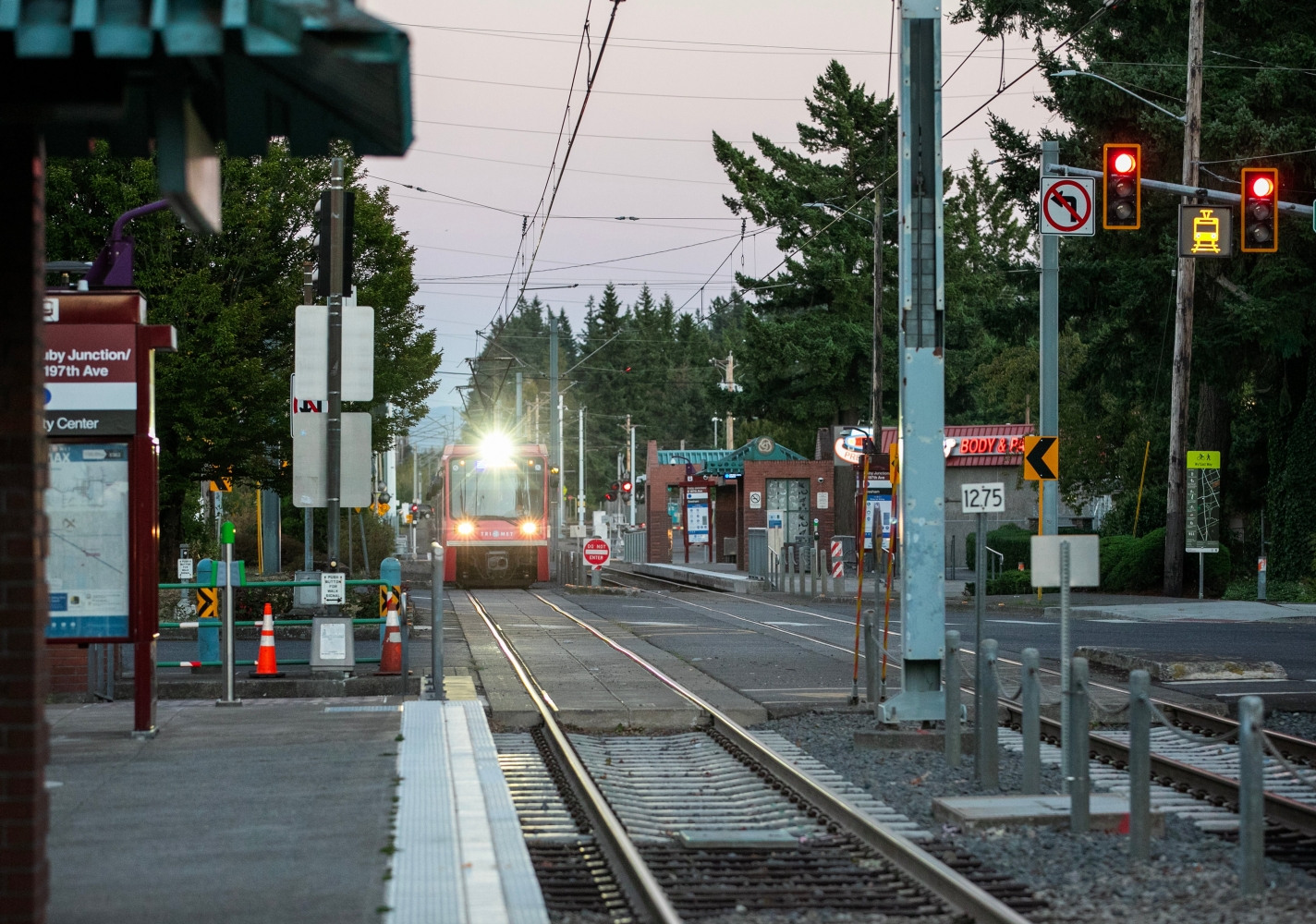For the first time since 2020, Portland police officers are back on TriMet’s Transit Police Division, marking a major step toward addressing growing safety concerns across the region’s buses, trains, and transit stations. The move comes amid increasing reports from riders and operators about aggressive behavior, open drug use, and a general decline in the sense of security while using public transportation.
Bus Operators Voice Safety Concerns
For veteran TriMet bus driver Patrick Coomer, the issue feels personal. One summer night, as he reached the end of his North Portland route, a passenger who appeared intoxicated refused to exit the bus. When Coomer insisted, the man turned and asked chillingly, “How would you like to be stabbed tonight?”
The threat left Coomer shaken. “It ruined me for the rest of the night,” he said. “Every time I leave this house, I don’t know if I’m gonna come home again.” His fear echoes that of many TriMet employees who have reported escalating tensions and unpredictable behavior from riders in recent years.
Also Read
TriMet’s Renewed Focus on Safety
TriMet operates Oregon’s largest public transportation network, employing nearly 500 security personnel. Their roles range from connecting riders to social services to enforcing system rules, but only a fraction are armed law enforcement officers.
Under a new agreement, the Portland Police Bureau will assign five officers and one sergeant to the Transit Police Division. The division also recently added three officers from the Port of Portland Police and a lieutenant from the Multnomah County Sheriff’s Office, which oversees the unit.
The return of Portland police represents a reversal from 2020, when the city withdrew from the partnership amid social justice protests following the murder of George Floyd. At its height, the Transit Police had 65 members; with these additions, the unit now counts 31 officers.
“Simply having a visible police presence can discourage crime before it happens and reassure riders,” said Transit Police Captain Matt Jordan.
Decline in Calls, but Riders Still Feel Unsafe
While police calls related to TriMet have dropped nearly 50% between 2021 and 2024, many riders still report feeling unsafe. A 2024 TriMet survey revealed that only half of respondents said they felt secure using the system.
The survey found that 82% of riders cited “nuisance or aggressive behavior” from others as their top concern, followed by a lack of visible police presence. Common issues include intoxicated passengers, verbal harassment, and drug use.
“I carry mace with me everywhere,” said Michelle West, a frequent TriMet rider from Northeast Portland. “I’ve seen people drinking, fighting, and acting completely out of control. Nobody says anything anymore because it’s become normal.”
Rising Incidents and the Push for Faster Response
According to a 2024 Transit Police report, officers handled 4,387 service calls on TriMet property. However, many incidents were still handled by local police departments due to the transit unit’s limited staffing.
The Multnomah County Sheriff’s Office, which leads the operation, documented 152 violent incidents last year, including threats and assaults — roughly a dozen each month. With TriMet averaging five million rides monthly, even a small fraction of violent encounters can affect public confidence.
Captain Jordan said that expanding the police force will help ensure faster, more effective responses. TriMet’s Chief Safety Officer, Andrew Wilson, added that law enforcement alone isn’t enough: “Every major transit system in the country has law enforcement, but you also need other safety tools — cameras, lighting, and communication systems — to create a full safety network.”
Technology and Infrastructure Improvements
TriMet is investing heavily in non-police safety measures. These include:
-
Upgraded surveillance cameras throughout stations and vehicles.
-
A rider security hotline for immediate assistance.
-
Improved LED lighting in and around platforms.
-
Installation of blue light emergency phones, similar to those found on university campuses.
“The combination of everything is definitely helping,” said long-time rider Delisa Guerrero, who often travels with her dog, Rascal. However, she noted that visible issues such as open drug use at some stops make her uneasy. “I’m not a fan of cops, but I do think they might be necessary on certain lines or late at night,” she said.
Union Pushes for Code Enforcement
Despite these developments, the Amalgamated Transit Union Local 757 — which represents TriMet operators — argues that the system still lacks proper enforcement of transit rules.
Union President Bruce Hansen, a former bus driver, said TriMet relies too heavily on unarmed, contracted security guards who lack authority to enforce code violations such as fare evasion or public intoxication.
Out of TriMet’s 492 security staff, more than half are employed by Allied Universal Security Services, whose guards can request riders to leave but cannot issue citations or bans. Only about 50 TriMet code enforcers have the power to conduct fare checks and enforce rider conduct.
“You’ve allowed the system to get out of control by not enforcing your own rules,” Hansen said. “A uniformed guard isn’t enough.”
TriMet spokesperson Roberta Altstadt said the agency is not currently expanding its code enforcement team but is hiring more support staff to assist existing personnel.
A Step Toward Rebuilding Rider Confidence
For many TriMet operators, the return of Portland police offers a glimmer of reassurance. “I used to have a cop ride with me for a stop or two and just check in,” said Coomer. “It made a difference. Just seeing them there is a deterrent.”
Still, he and others believe lasting safety will require collaboration between TriMet, police, riders, and the union. “Everyone needs to be part of the conversation,” he said.
As TriMet continues balancing visible policing with community-centered safety initiatives, officials hope these efforts will rebuild rider trust — and restore a sense of security for those who rely on public transit every day.












